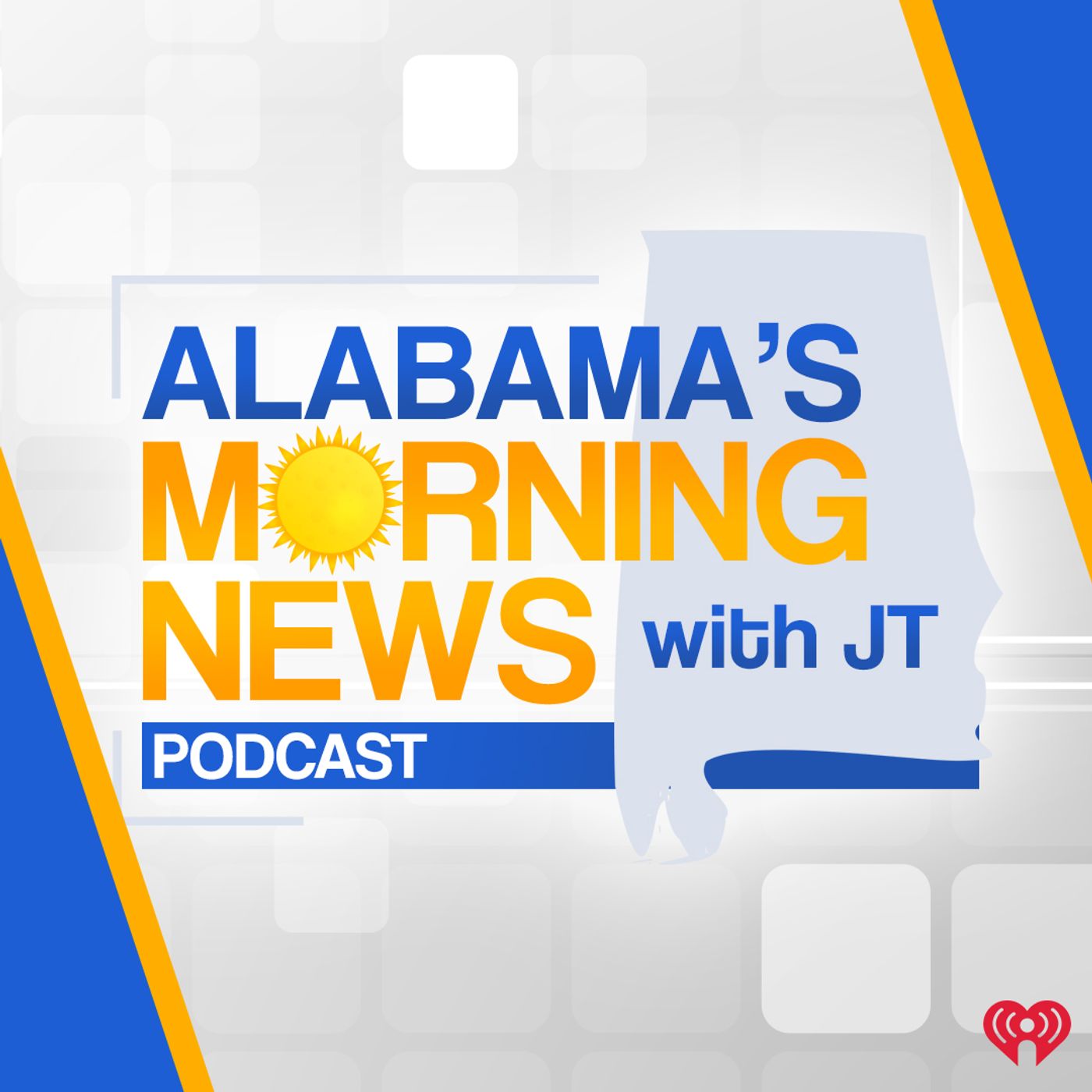Alabama's Morning News with JT
Rob Hayden tells us to check in on people close to us
And welcome back to Alabama's Morning News 753. I'm John Mounts filling in for JT today. And I am joined now by Rob Hayden, who is the founder of the HT40 Foundation and shoulder check. Rob, welcome to Alabama's Morning News. - Thanks so much for having me. I appreciate it, good morning. - Good morning, Rob. So the reason why I've got you on today is because so often we need to be more attentive to the needs of others around us. Sometimes we're a so tunnel vision in what we're doing ourselves. We don't realize that others have needs as well. - Yeah, exactly, that's the shoulder check and our program is all about. Just trying to create a little bit more awareness for one another. - So when did you, what made you decide to make this program? - Yeah, I mean, it's born a tragedy. No question about it. My son Hayden passed away two years ago. He died by suicide. And he is one of those guys where, he made a list of a thousand people. He would be the thousandth name on that list by all outward appearances he was thriving, right? As a student, as a 16 year old boy, as an athlete, all those things. But obviously he was grappling with something. But instead of kind of living in those last moments, we kind of decided that we'd honor who he was because what he did in the world every day that left such an impression on so many people was he was a check in guy. He was a hand on shoulder guy. And when he passed, a lot of people asked the question, like, who's gonna do for us what Hayden always did? And this program, it answers that by saying we all came. We're all capable of putting a hand on someone else's shoulder and saying how you do it and being there for the answer in earnest. - And sometimes when you do that, you have to be willing to accept the answer or you have to really drill down because the response everyone always gets on fine. And then, oh good, you're fine. And then you move on. But sometimes you have to look a little bit more closely and say, ask a second question like, so how's your day been going? What do you need? What can I do to help? Do you ever need a little time off? Want to get together, go to lunch? That kind of thing. - That's exactly it. Our program, we say it's called the shoulder check. And what we're trying to do is just give folks easy ways to check in on one another. And we say all the time, it's as simple as a hand on a shoulder. And our kind of tag line for the initiative is reach out, check in, make contact. And make contact, you chose those words really specifically because you've got to be there for someone. And to your point, it's easy to say, it's easy to brush that off. And I did it even as we went through this tragedy. People would say to me, how are you doing that? So yeah, I'm okay. Obviously I wasn't okay. And I think that's what this initiative is really meant to do is to try and help people to allow themselves to be vulnerable enough to answer that question. I think that's the key to it, right? Like creating space for vulnerability. You know, we're kind of, there's a lot of bravado in the world, you know, where it says like, you have to be okay, stiff up or limp, we'll get through it. But sometimes you need a hand and it's okay to ask for it. - And giving space and giving time. Sometimes when you're passing somebody in the hallway, how's it going buddy? A lot of times somebody will ask you that question and they'll keep on moving. They didn't even have time for you to go, yeah, I'm fine. You know, they didn't even notice. And so you have to do it at a time in a place where people can actually have a chance to be vulnerable to show what they need. - Yeah. Yeah, and I think that's not my experience with the two. So a lot of the way this works is we've got kids literally across the country. I say I'm just outside Stanford, Connecticut, but we've had people participate in the program now from Stanford all the way to Seattle. And it's a lot of it is kids bringing the initiative to their teams and to their schools. And then I hear feedback from them and they say, you know, like I brought this to my team, my son's a hockey player, so a lot of hockey teams have participated in this. And, you know, come back to me and say like, it was really different amongst us after we kind of made this commitment. 'Cause the way it works is you kind of circle up with your teammates or classmates or workmates, whatever it is, put your hands on each other's shoulders. And you say, I promise to reach out, check in and make contact. And even just doing that and like affirming that with everyone together, changes the context. Like it starts to create that space and give people permission to have these conversations. And, you know, it's, you know, it's not just me saying, I hope that's the way it works. Like I know it has and the kids have told me as much. So I think that's it, right? Just kind of giving folks the space and permission to have these conversations helps. - Rob Hayden with Shoulder Check. Thank you so much for joining us.
